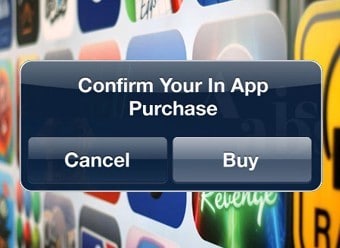Apple’s IDFA Deprecation Part 3: Impact on the users. There WAS an app for that.

Photo by Kostiantyn Li on Unsplash
Background:
Apple’s announcement of the deprecation of the IDFA has dominated the mobile app ecosystem’s attention since June 2020, and while it is sure to affect the entire ecosystem, the industry is scrambling to plan and react to this massive industry shift.
In speaking and strategizing with dozens of app developers and publishers around the world over the past several months, AdLibertas has assembled some thinking into what the leaders are doing to plan, prepare and adapt.
This three-part series is our assessment of what’s to come for the mobile app industry, which apps are poised to win or likely to struggle, and how app developers can prepare and adapt.
- Part 1: Where will the impacts be felt? How are app developers preparing now, and how will they drive revenue in the near-term?
- Part 2: What types of apps are most exposed to risk – and most poised to thrive?
- Part 3: How will Apple’s privacy changes change mobile apps in the long term?
If you’re a mobile app developer, what does your next year look like? Share your thoughts either in the comments or directly at adam@adlibertas.com.
Apple’s privacy changes will lead to fewer ads in your app. And that’s not necessarily a good thing.
While there have been rumblings for years, the Facebook-Apple rivalry has become front-page tech news in the past weeks, with the two tech giants publicly battling “to inflict pain” over forthcoming Apple privacy changes. While Apple is standing behind user privacy as the catalyst, at the root of this battle is a huge amount of money generated by mobile users: advertising dollars. The forthcoming privacy changes will drastically change how advertising works for this $240B per year business, and for Facebook—who earns an eye-watering $66B from mobile advertising — it will not be good for their bottom line.
Normally for the everyday person these types of headlines rarely matter, the change in some tech giants accounting byline doesn’t affect their everyday life. These privacy changes however are different. The ripple effect caused by the battle of these tech giants will directly impact the 3.8B people who use mobile phones – specifically, changing advertising will change apps as we know them today. And not all for the better.

Photo by Alireza Hosseini Moghadam on Unsplash
Ads Democratized the Apps – and that was a good thing
Mobile apps are incredibly complex. The developers behind them are equal parts artists, technologists and entrepreneurs. In an ideal world they could exercise these skills and provide beautiful, innovative apps that stand alone as wildly successful businesses. But the fact of the matter is today only around 5% of users will ever directly pay for an app.
Enter in-app advertising. Even though a purchaser is generally far more valuable than an ad-supported use, the sheer scale of ad-supported users makes them a viable business for app developers. The amount of money earned by advertising is double the amount of money spent by consumers on apps. This has been a win-win for everyone: app developers have a reliable revenue stream, and users get access to a tremendous amount of content without opening up their wallets.
Apple’s proposed changes will likely upend the ad model. By rolling out these new privacy changes, Apple is making it harder for advertisers to show targeted ads. Advertisers can’t spend their dollars without this sophisticated tracking and targeting, meaning they’ll need to look elsewhere to spend their ad dollars. While advertising won’t go away entirely, predictions having it shrink upwards of 66%, severely impacting the revenue app developers have come to rely on. With this having a massive impact on the app developers, they will look to earn this missing revenue elsewhere.

Goodbye Annoying Ads. Hello Annoying Purchase Pop-ups
Consumers may be excited at the prospect of fewer video ads in the newest guilty-pleasure app. However, if you take away ad revenue from app developers, they lose the ability to make money from non-paying users. This means they can’t cater to users who aren’t paying for the app directly.
That new game or viral app you’re downloading? In today’s ad-supported world, everyone gets to download it from the app store. But tomorrow, it could easily only be available as a micro-transaction, purchase, or behind a monthly subscription. Annoying ads will just be traded for annoying subscription prompts or forced in-app purchases.

Photo by Jonas Leupe on Unsplash
Are Paywalls the future?
A similar story has played out in the past few years in journalism – the rise of paywall. Fighting downward advertising revenues, 76% of American online newspapers employ a paywall in some form today. Can you remember the last time you weren’t warned of your “last” article on a news site, or worse clicked on an interesting article only find it blocked because you weren’t a subscriber?
“Paywalls don’t work all that well. And they don’t make that much money.” While the paywall may not be a smashing success, it’s clear that the mentality of these firms have changed: we’re not getting news for free. It’s easy to see app developers adopting a similar approach to their content.
Using the journalism paywall as a harbinger: most news readers are only willing to pay for a single subscription, and “the media landscape, then, may come to resemble what it looked like before the internet, where it was difficult and expensive for any one consumer to traverse a wide range of viewpoints.” (Wired)

Photo by Atharva Tulsi on Unsplash
End of the Indie App Developer?
With the ad revenue stream drying up, it’s not hard to picture a similar scenario happening with the app industry. As the success of an app becomes less about capturing the interest of a user, it will instead become about getting a payment from a user. Successful apps—apps that get users to pay– will need to be created, curated and optimized via huge stacks of user data. This requires massive investment in data science and the technical infrastructure. The company’s best suited to take advantage of this shift? The large, well-funded giants who are already gobbling up their contemporaries in the ecosystem. This movement to data-analysis leading to success further stacks the odds against the small independent app developer who is trying to bring a fresh, new idea to the app store. Many app developers won’t be able to compete, and we’ll likely see a decline in the volume and variety of apps as a result.
At the same time, this analytics-driven approach to content brings the privacy issue full-circle. If the app developer is tracking your every swipe, click and view in the app and hyper-targeting purchase prompts based on your history, is that really different from the tech giants’ algorithms picking an ad for you to see?
Conclusion
Often, when company giants clash, it’s of little concern to the average person. However, our world is more connected than ever and when it comes to apps, everyone will be impacted by Apple and Facebook coming to blows. To survive, apps—and their creators– will focus less on fresh, new ideas and instead cater only to those willing to open their wallet. And that’s a change we’ll all pay for.
About Us
AdLibertas is a company that makes tools for App Developers to make better apps. Recently we’ve building tools to help app developers deal with Apple’s changes as well as getting a better idea on how their users use their app. Our recently released product Audience Reporting allows app developers to measure revenue by user-impact or event. Such as how much a tutorial helps overall user earnings. Or how much an IDFA opt-in affects user earnings.